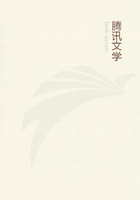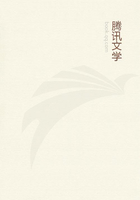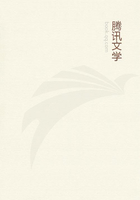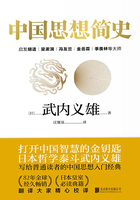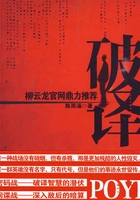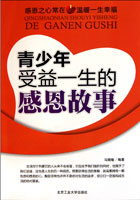Edward felt that his daytime hours, spent in a publishing atmosphere as stenographer with Henry Holt and Company, were more in line with his editorial duties during the evenings.The Brooklyn Magazine was now earning a comfortable income for its two young proprietors, and their backers were entirely satisfied with the way it was being conducted.In fact, one of these backers, Mr.Rufus T.Bush, associated with the Standard Oil Company, who became especially interested, thought he saw in the success of the two boys a possible opening for one of his sons, who was shortly to be graduated from college.He talked to the publisher and editor about the idea, but the boys showed by their books that while there was a reasonable income for them, not wholly dependent on the magazine, there was no room for a third.
Mr.Bush now suggested that he buy the magazine for his son, alter its name, enlarge its scope, and make of it a national periodical.
Arrangements were concluded, those who had financially backed the venture were fully paid, and the two boys received a satisfactory amount for their work in building up the magazine.Mr.Bush asked Edward to suggest a name for the new periodical, and in the following month of May, 1887, The Brooklyn Magazine became The American Magazine, with its publication office in New York.But, though a great deal of money was spent on the new magazine, it did not succeed.Mr.Bush sold his interest in the periodical, which, once more changing its name, became The Cosmopolitan Magazine.Since then it has passed through the hands of several owners, but the name has remained the same.Before Mr.Bush sold The American Magazine he had urged Edward to come back to it as its editor, with promise of financial support; but the young man felt instinctively that his return would not be wise.The magazine had been The Cosmopolitan only a short time when the new owners, Mr.Paul J.
Slicht and Mr.E.D.Walker, also solicited the previous editor to accept reappointment.But Edward, feeling that his baby had been rechristened too often for him to father it again, declined the proposition.He had not heard the last of it, however, for, by a curious coincidence, its subsequent owner, entirely ignorant of Edward's previous association with the magazine, invited him to connect himself with it.Thus three times could Edward Bok have returned to the magazine for whose creation he was responsible.
Edward was now without editorial cares; but he had already, even before disposing of the magazine, embarked on another line of endeavor.In sending to a number of newspapers the advance sheets of a particularly striking "feature" in one of his numbers of The Brooklyn Magazine, it occurred to him that he was furnishing a good deal of valuable material to these papers without cost.It is true his magazine was receiving the advertising value of editorial comment; but the boy wondered whether the newspapers would not be willing to pay for the privilege of simultaneous publication.An inquiry or two proved that they would.Thus Edward stumbled upon the "syndicate" plan of furnishing the same article to a group of newspapers, one in each city, for simultaneous publication.He looked over the ground, and found that while his idea was not a new one, since two "syndicate" agencies already existed, the field was by no means fully covered, and that the success of a third agency would depend entirely upon its ability to furnish the newspapers with material equally good or better than they received from the others.After following the material furnished by these agencies for two or three weeks, Edward decided that there was plenty of room for his new ideas.
He discussed the matter with his former magazine partner, Colver, and suggested that if they could induce Mr.Beecher to write a weekly comment on current events for the newspapers it would make an auspicious beginning.They decided to talk it over with the famous preacher.For to be a "Plymouth boy"--that is, to go to the Plymouth Church Sunday-school and to attend church there--was to know personally and become devoted to Henry Ward Beecher.And the two were synonymous.There was no distance between Mr.Beecher and his "Plymouth boys." Each understood the other.
The tie was that of absolute comradeship.
"I don't believe in it, boys," said Mr.Beecher when Edward and his friend broached the syndicate letter to him."No one yet ever made a cent out of my supposed literary work."All the more reason, was the argument, why some one should.
Mr.Beecher smiled! How well he knew the youthful enthusiasm that rushes in, etc.
"Well, all right, boys! I like your pluck," he finally said."I'll help you if I can."The boys agreed to pay Mr.Beecher a weekly sum of two hundred and fifty dollars--which he knew was considerable for them.
When the first article had been written they took him their first check.
He looked at it quizzically, and then at the boys.Then he said simply:
"Thank you." He took a pin and pinned the check to his desk.There it remained, much to the curiosity of the two boys.
The following week he had written the second article and the boys gave him another check.He pinned that up over the other."I like to look at them," was his only explanation, as he saw Edward's inquiring glance one morning.
The third check was treated the same way.When the boys handed him the fourth, one morning, as he was pinning it up over the others, he asked:
"When do you get your money from the newspapers?"He was told that the bills were going out that morning for the four letters constituting a month's service.
"I see," he remarked.
A fortnight passed, then one day Mr.Beecher asked: "Well, how are the checks coming in?""Very well," he was assured.
"Suppose you let me see how much you've got in," he suggested, and the boys brought the accounts to him.

